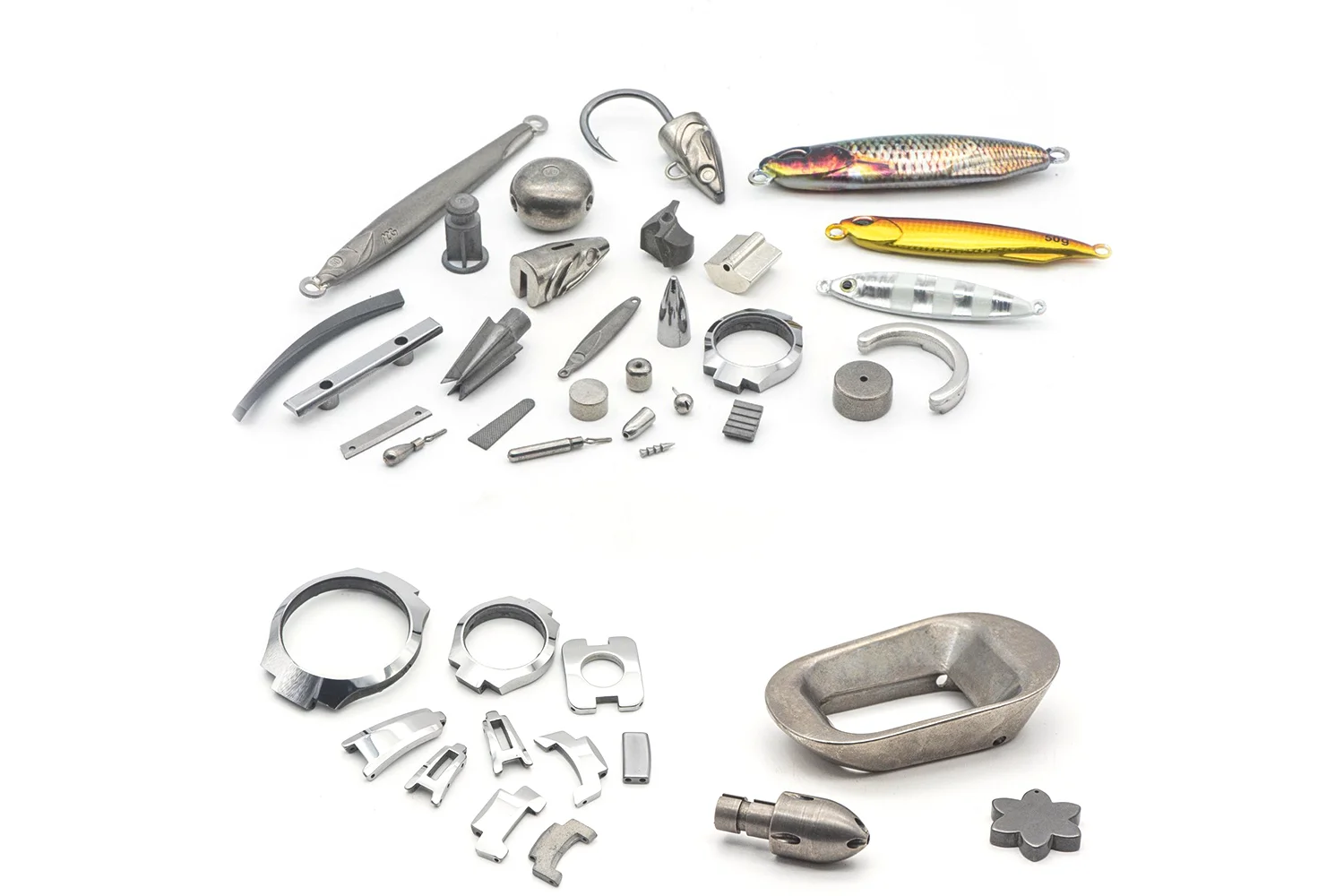Picking materials for metal injection molding (MIM) doesn’t need to be complicated. Here’s what beginners should know:
What are MIM materials?
They’re special metal powders mixed with binder to make small, complex parts. Common choices include:
- Stainless steels (most popular)
- Titanium (strong but expensive)
- Tungsten (super heavy)
- Copper (great for electronics)
(What types of products are suitable for metal injection molding?)

5 Most Used MIM Materials Explained
1. Stainless Steel (The All-Around Choice)
Best for: Medical tools, car parts, everyday items
Why?
✔ Doesn’t rust easily
✔ Good strength
✔ Affordable ($15-25/kg)
Types:
- 316L – For wet environments
- 17-4PH – Extra strong when heat-treated
2. Titanium (Lightweight Champion)
Best for: Airplane parts, body implants
Pros:
✓ 45% lighter than steel
✓ Body-friendly (for implants)
Cons:
✗ Costs 3x more than steel
✗ Harder to work with
3. Tungsten (The Heavyweight)
Used in: X-ray shields, vibration dampers
Special power:
☑ Extremely dense (blocks radiation)
☑ Withstands crazy heat
4. Soft Magnetic Metals
Perfect for:
- Electric car motors
- Phone vibration motors
Secret sauce:
♫ Makes electricity flow better
5. Copper (The Heat Manager)
Great at:
✓ Moving heat away (heat sinks)
✓ Conducting electricity
How to Pick Your Material: 3 Simple Questions
1.What does your part do?
Need strength? Try 17-4PH steel
Must be light? Go titanium
2.Where will it be used?
Wet places? 316L stainless
Inside body? Medical-grade metals
3.What’s your budget?
Tight budget? Basic steels
More to spend? Fancy alloys
Real World Examples
Hip Implants
Material: Ti-6Al-4V titanium
Why? Light, strong, and body-safe
Car Fuel Nozzles
Material: 17-4PH stainless
Why? Handles high pressure and heat
Smartphone Parts
Material: Soft magnetic alloys
Why? Helps make vibration motors
Common Questions
Q: What’s the cheapest MIM material?
A: Basic steels cost about $15/kg – great for most projects.
Q: Can you make gold MIM parts?
A: Yes! But it’s mostly for jewelry – too expensive for industry.
Q: How long do MIM materials last?
A: Stainless steel parts can last decades outside.

One Comment